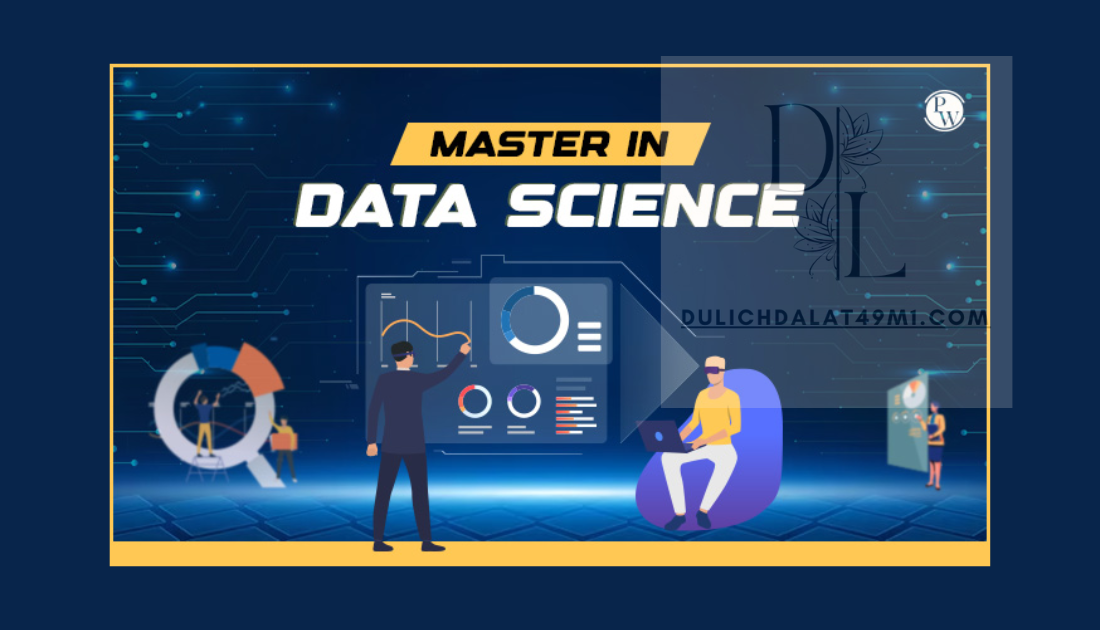In today’s increasingly digital world, data is being generated at an unprecedented rate. From online transactions and social media interactions to sensor data and business analytics, the volume, variety, and velocity of data have exploded. With this explosion comes the need for skilled professionals who can turn raw data into actionable insights. This is where a Master’s in Data Science comes in—a degree that has quickly become one of the most sought-after qualifications for those looking to pursue a career in this dynamic field.
What is Data Science?
At its core, data science is the process of collecting, analyzing, and interpreting large volumes of data to inform decision-making, identify trends, and solve complex problems. It involves a combination of several disciplines, including computer science, statistics, and domain-specific expertise. The goal of data science is to extract knowledge from structured and unstructured data, often using advanced techniques in machine learning, artificial intelligence (AI), and big data analytics.
A Master’s in Data Science prepares students to become experts in these techniques, equipping them with the technical skills, analytical mindset, and problem-solving capabilities needed to thrive in the rapidly evolving data-driven landscape.
Why Pursue a Master’s in Data Science?
There are several compelling reasons why a Master’s in Data Science has become an attractive choice for professionals and recent graduates alike.
1. High Demand for Data Professionals
The demand for data scientists and data analysts has skyrocketed in recent years. According to industry reports, companies in virtually every sector—finance, healthcare, technology, retail, and more—are seeking skilled data professionals to help them make sense of their data. From developing predictive models and improving customer experiences to optimizing operations and ensuring data security, data scientists are at the forefront of technological innovation.
This high demand translates into a robust job market and lucrative career opportunities for those with the right qualifications. With a Master’s in Data Science, graduates can expect to command competitive salaries and secure positions in some of the world’s leading companies.
2. Diverse Career Opportunities
A Master’s in Data Science opens the door to a wide range of career paths. Data scientists, data engineers, machine learning engineers, business analysts, and AI specialists are just a few of the roles that graduates can pursue. Data science skills are also applicable to specialized fields like healthcare analytics, financial modeling, cybersecurity, and even entertainment or sports analytics.
In addition, data science professionals often find themselves working in teams with other experts, including software engineers, data analysts, and business leaders, making the field ideal for individuals who enjoy collaboration and cross-disciplinary work.
3. Innovative and Exciting Work
Data science is a constantly evolving field that offers exciting challenges. The field is rooted in solving real-world problems, such as predicting consumer behavior, optimizing business operations, or analyzing climate change patterns. As a data scientist, you’ll often be working on cutting-edge projects that require creative thinking and innovative approaches.
Moreover, the opportunity to apply machine learning, AI, and data mining techniques to complex, real-world data allows professionals to make significant impacts across various industries. Whether you’re developing algorithms that help doctors diagnose diseases more accurately or building models that enhance user experiences on social media platforms, the work is often highly rewarding and intellectually stimulating.
4. Lucrative Salary Potential
Data science roles are consistently among the highest-paid positions in the technology sector. According to multiple salary surveys, data scientists earn significantly more than their peers in other technology or business fields. Depending on the level of experience, expertise, and location, the salary for someone with a Master’s in Data Science can range from $80,000 to over $150,000 per year.
In addition to high base salaries, many companies offer bonuses, equity, and other benefits to data science professionals, further boosting the earning potential.
Key Skills Developed in a Master’s in Data Science Program
A Master’s in Data Science typically covers a broad range of topics designed to equip students with the knowledge and skills needed to excel in the field. Some of the key areas of focus include:
1. Programming and Coding
Proficiency in programming languages like Python, R, and SQL is essential for data scientists. These languages are used for data manipulation, analysis, and modeling. Many data science programs teach students how to write efficient code to handle large datasets, build algorithms, and implement machine learning models.
2. Mathematics and Statistics
Data science relies heavily on statistical methods to interpret data and make predictions. A Master’s in Data Science will often include courses in probability theory, hypothesis testing, linear algebra, and multivariable calculus. Understanding the mathematical foundations of machine learning algorithms, such as regression analysis and optimization techniques, is crucial for building accurate predictive models.
3. Machine Learning and AI
Machine learning is a core component of data science. Students in a Master’s in Data Science program typically gain hands-on experience with supervised and unsupervised learning algorithms, deep learning, natural language processing, and reinforcement learning. These techniques enable data scientists to build systems that can learn from data, make decisions, and improve over time without explicit programming.
4. Big Data and Cloud Computing
In today’s world, data often comes in vast quantities, making it necessary for data scientists to understand how to manage and process big data. Many data science programs teach students how to use tools like Hadoop, Spark, and cloud computing platforms like AWS and Google Cloud to store, process, and analyze large datasets efficiently.
5. Data Visualization
Communicating complex insights in an understandable and actionable way is crucial for data scientists. Master’s programs often include courses on data visualization, using tools such as Tableau, Power BI, and D3.js to create compelling graphs and dashboards. This helps stakeholders, including executives and clients, understand data-driven insights and make informed decisions.
6. Domain Expertise
While technical skills are vital, many data science programs also emphasize domain expertise. Whether it’s healthcare, finance, retail, or any other field, understanding the specific challenges and opportunities within an industry can help data scientists create more relevant and impactful solutions.
Choosing the Right Master’s in Data Science Program
When selecting a Master’s in Data Science program, there are several factors to consider:
- Curriculum: Ensure the program offers a comprehensive curriculum that covers the core technical areas, including machine learning, statistics, and big data, while also providing opportunities for specialization in areas such as AI or business analytics.
- Reputation and Accreditation: Choose a program from a reputable institution with strong ties to the industry. Look for accreditation and positive reviews from alumni to ensure you’re receiving a quality education.
- Hands-on Experience: Look for programs that offer practical experience, such as internships, capstone projects, or collaborations with companies. These experiences will help you build a portfolio that demonstrates your skills to future employers.
- Networking Opportunities: A strong network can help you connect with mentors, peers, and potential employers. Consider programs that offer networking events, workshops, or alumni networks.
Conclusion
A Master’s in Data Science is not just a ticket to a lucrative career but also a chance to be at the forefront of the data revolution. As businesses and organizations continue to generate massive amounts of data, the need for skilled data professionals will only grow. By equipping yourself with the technical skills and domain expertise gained through a Master’s program, you can unlock a world of career opportunities and contribute to solving some of society’s most pressing challenges.
Whether you’re passionate about technology, problem-solving, or data-driven decision-making, pursuing a Master’s in Data Science could be the key to your success in this exciting and ever-evolving field.

